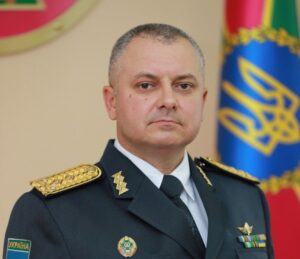
As of the end of 2025, 37 industrial enterprises have been built or are under construction in Ukraine’s industrial parks, of which 22 factories have already been built and 15 are under construction, according to the Ministry of Economy, Environment, and Agriculture. As reported, by the end of 2024, 25 industrial enterprises were operating or under construction in industrial parks, of which 12 had been built.
Among those operating or under construction as of the end of last year were enterprises in the fields of agro-processing, food production, furniture and woodworking, machine building, and others. Operating enterprises created 3,716 jobs.
The Ministry of Economy also recalls that in 2025, it decided to provide state incentives to 13 industrial parks for the implementation of 22 infrastructure projects totaling UAH 697.77 million.
In addition, UAH 202.91 million was transferred during the year to two industrial parks, the decisions on which were made in 2024.
Thus, the total amount of state incentives for industrial parks in 2025 amounted to UAH 900.681 million, the ministry concludes.
“2025 was the year when the number of industrial parks turned into real platforms for the implementation of the ”Made in Ukraine” policy. Almost UAH 1 billion in state incentives for industrial parks this year is an investment in infrastructure that is already giving life to new factories today. The state is laying the foundation, and business is turning it into new capacity and jobs,” Economy Minister Oleksiy Sobolev is quoted as saying in the statement.
As reported, 13 industrial parks received state incentives last year.
As of December 31, 2025, 118 industrial parks were included in the Register of Industrial Parks, of which 24 parks were included during 2025. At the same time, eight parks that did not carry out any activities were excluded from the Register.
The State Incentives for the Creation of Industrial Parks program provides for the development of engineering and transport infrastructure in industrial parks on a co-financing basis. State support may be directed toward the construction of roads, electrical networks, water supply and sewage systems, gas supply, and other technical solutions necessary for the launch of production.
State incentives provide for co-financing in a ratio of 50% to 50% for up to UAH 150 million per IP, and for de-occupied territories in a ratio of 80% to 20%.
The Ministry of Economy is implementing the program in cooperation with Ukreximbank, Oschadbank, Ukrgasbank, and Sens Bank.
A number of fiscal incentives are also provided for IP participants.

More than 250 thousand sole proprietorships closed in Ukraine in 11 months of 2025, according to the Unified State Register. One in eight entrepreneurs who closed last year worked in Kyiv. On average, sole proprietors live for 2.4 years. The longest-lived entrepreneurs are those engaged in warehousing activities, while the shortest-lived are couriers.
250,209 fops have closed since the beginning of 2025 in Ukraine. The peak of closures occurred in January, when, after a month and a half break in the work of the registers, 59,723 entrepreneurs immediately documented the closure.
2 years and 4 months is the average period of operation of a fop in Ukraine.
We follow the dynamics on the page about Ukrainian foponomics.
Every eighth entrepreneur who closed in 2025 worked in Kyiv: 32,469 fops. Dnipropetrovs’k region is the second most closing region: 22,645 entrepreneurs ceased their activities last year. Small businesses in Kharkiv (20,481), Odesa (18,714), and Lviv (16,521) regions closed by a small margin.
The most vulnerable last year were retailers, accounting for a third of closures (77,705). On average, such businesses have been in existence for less than 3 years. Another 16,909 sole proprietorships in the wholesale trade sector ceased operations in 2025 – such entrepreneurs barely make it through the year. Overall, the trade niche alone accounts for almost half of the closures.
By a wide margin , IT specialists were the second most frequent closures – 28,668, or every ninth entrepreneur who closed last year. By the way, IT entrepreneurs are also among the longest-lived entrepreneurs – 3 years and 11 months.
How long does the average fop live?
The longest-lived entrepreneurs in Ukraine are those engaged in warehousing, with more than 6 years of experience.
Real estate entrepreneurs have been operating for 5 years and 11 months. Businesses in the field of equipment repair, in particular, household appliances, round out the top three: 5 years and 9 months.
But courier firms are the least resilient – only 6 months, on average, have been worked by entrepreneurs who closed in this area last year. FOPs in the field of administrative and auxiliary office activities survive for 9 months.
Entrepreneurs in the aforementioned wholesale trade and educators have been operating for just over a year.
https://opendatabot.ua/analytics/fops-midage-2025




In 2025, Ukrainians purchased 83,443 thousand new passenger cars, which is 17% more than in the previous year. In particular, in December, sales increased 2.2 times to 12,724 thousand, according to AUTO-Consulting
“Thus, 2025 went down in history as the year of the Ukrainian car market’s recovery,” the group’s website states.
Toyota maintained its leadership in 2025, selling 10,700 cars (3.15% less than in 2024), although in the last months of the year it was forced to let Chinese BYD take the lead.
Experts note that BYD became the phenomenon of 2025, rising from 11th place in the ranking to second and occupying 26% of the market by the end of the year with sales of almost 10,600 cars (4.6 times more).
“We have never seen such a rapid breakthrough before. It should be added that BYD’s sales were carried out by so-called “gray” dealers, without an organized network of car dealerships, without service, without a coordinated policy. However, BYD became the second automaker to sell more than 10,000 cars in Ukraine in a year,” analysts said.
They noted that Volkswagen has been in third place in Ukraine for a year in a row, but this result was also made possible by the supply of “gray” electric cars from the Chinese market.
Renault lost two positions over the year and is now only fourth with sales of 6,330 cars (-11.4%), while Skoda, which took fifth place, is not far behind with sales of 6,180 cars (+21.2%).
According to AUTO-Consulting, BMW remains the No. 1 brand among premium cars, although in 2025 it had to actively defend this status from the Chinese as well – sales of the brand, which took sixth place in the overall ranking, fell by 21.4% to 3,800.
“Unexpectedly, Ukrainian consumers began to trust the newly created Chinese premium manufacturers and actively switch to them. That is why we already see Zeekr as number 8 on the market, although a year ago it only made it into the top 20. But Zeekr even had enough strength to overtake Audi,” the report states.
Experts also noted the successful policy of Hyundai, which increased sales by 37% to 3,640 units.
They also noted that Honda is in the top 10 for the second year in a row, which, thanks to “gray” dealers of Chinese electric cars, was able to overtake its colleagues in the Japanese auto industry – Suzuki, Mazda, and Nissan.
AUTO-Consulting emphasizes that the result of passenger car sales in December is due to the end of VAT exemptions on electric cars, whose share exceeded 50% (50.8%) for the first time last month.
“In December alone, Ukrainians purchased more than 6,500 electric cars, which is more than all car sales in the months at the beginning of 2025,” the report says.
In December, BYD took first place and sold 3,300 electric cars, compared to 192 in December 2024.
In addition, thanks to “gray” dealers, Volkswagen took second place in December (1,332 cars) and 10% of the Ukrainian market, surpassing Toyota (1,159 units). Skoda took fourth place with sales of 933 units (+56.3%), and Zeekr took fifth place (898 cars), surpassing all competitors in the premium segment.
“In fact, not all automakers were able to withstand the ‘Chinese electric invasion’ in December in the top 10. Among them were Renault, Hyundai, BMW, and Audi, although their sales were boosted by “gray” deliveries from the Chinese market,” experts noted.
The Ukravtoprom association also notes a 17% growth in the passenger car market in 2025, to 81,300 units. In particular, according to its data, 12,400 cars were sold in December, which is 2.2 times more than in December 2024 and 50% more than in November 2025. According to the association, the top three were BYD with 3,164 units, Volkswagen with 1,298 units, and Toyota with 1,117 units.
Next in the ranking are Skoda with 969 units, Zeekr with 844 units, Renault with 658 units, Honda with 441 units, Hyundai with 375 units, BMW with 324 units, and Audi with 316 units.
The bestseller of the month was the Volkswagen ID.UNYX.
As reported, according to Ukravtoprom, in 2024, initial registrations of new passenger cars in Ukraine increased by 14% compared to 2023, to 69,600 units, while according to AUTO-Consulting, sales increased by 9.8%, to 71,300 units.

As of January 1, 2026, 26 sugar factories that are members of the Ukrtsukor association processed 10.43 million tons of sugar beets and produced 1.574 million tons of sugar, the association’s press service reported on Telegram.
The industry association specified that sugar yield was 15.19% (+1.13% compared to last season) with beet sugar content of 17.63% (+0.88% compared to last year).
In January, six sugar factories will continue processing sugar beets. The sweet root processing season is expected to end by January 20, 2026, Ukrtsukor concluded.
The association reminded that sugar beet processing is also carried out by the Gorokhiv Sugar Factory, which is not a member of Ukrtsukor and does not provide the association with operational information.
As reported, 1.25 million tons of sugar were produced in Ukraine in the 2024-2025 marketing year, meaning that domestic sugar factories produced 25.9% more product this season than last year. The volume of the domestic market in Ukraine is currently estimated at 900,000 tons per year.

Gold and other precious metals rose on Monday amid events in Venezuela, which contributed to increased demand for safe-haven assets.
As reported, on January 3, US special forces conducted a special operation in Venezuela, capturing the country’s president, Nicolas Maduro, and his wife. Maduro will appear before a federal court in Manhattan, New York, on Monday, ABC News reported. He is expected to face drug trafficking charges that could result in multiple life sentences. US President Donald Trump said on Saturday that his country would temporarily take control of Venezuela.
The spot price of gold rose 2.1% during trading to $4,422 per ounce. Gold for February delivery on Comex rose 2.4% to $4,433.3 per ounce.
“Events in Venezuela have spurred demand for defensive assets as investors seek to protect themselves from geopolitical risks,” said KCM Trade analyst Tim Waterer. “Gold and silver were among the main beneficiaries.”
In 2025, gold rose 64%—the most since 1979—amid geopolitical tensions, lower interest rates, and high demand from global central banks. On December 26, the price of the precious metal rose to a record $4,549.71 per ounce.
The price of silver on the spot market rose 3.8% on Monday to $75.33 per ounce. At the end of last year, silver rose 2.5 times in price, which was its best annual performance. The price of the precious metal reached a record high of $83.62 per ounce on December 29.
The spot price of platinum rose 3.7% during trading to $2,220.3 per ounce, and palladium rose 2% to $1,671.7 per ounce.
Earlier, the Experts Club analytical center presented an analysis of the world’s leading gold-producing countries in its video on YouTube channel — https://youtube.com/shorts/DWbzJ1e2tJc?si=BywddHO-JFWFqUFA

Ukrainian President Volodymyr Zelensky has appointed Valery Vavrynyuk, first deputy head of the State Border Service of Ukraine, as acting head of the SBU.
The corresponding decree No. 10/2026 of January 4, 2026, was published on the website of the President of Ukraine.
Valery Vavrynyuk was appointed first deputy head of the State Border Guard Service on October 20, 2025, according to his biography on the State Border Guard Service website.
In 2023, he was appointed head of the Western Regional Administration, and in 2019, head of the Eastern Regional Administration of the State Border Guard Service.
Until October 2019, he was appointed to the positions of head of border detachments in the Eastern and Western Regional Administrations and to positions in the Eastern Regional Administration of the State Border Guard Service.
From December 2014 to July 2015, he was deputy head of the regional administration and head of the operational and military department of the Eastern Regional Administration of the State Border Guard Service.
From 2008 to 2014, he held management positions in border guard units in the Northern and Southern Regional Administrations of the State Border Guard Service.